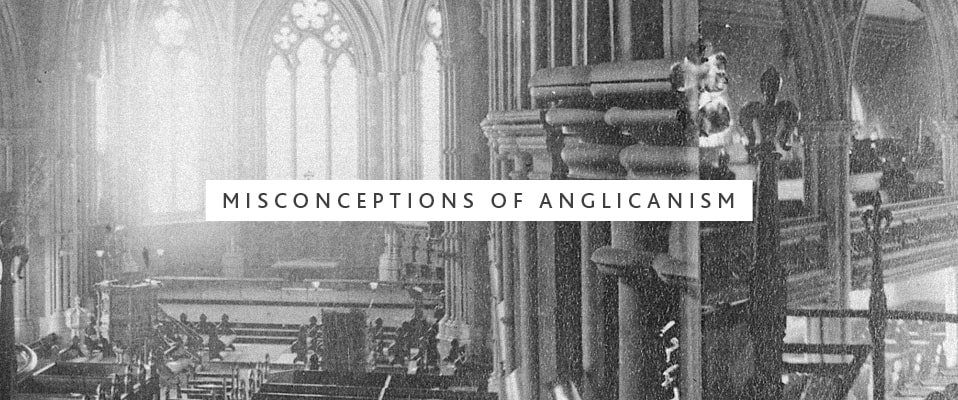Julia, Ansley, Maggie and I recently returned from a wonderful holiday in San Diego. A friend said to us, “enjoy the promised land.” I now understand what he meant. Our time away was full of joy, beautiful scenery, animals at the San Diego Zoo (who are doing amazing things for animal conservation and the environment), pristine beaches that stretch for miles, a Daddy accidentally dislocating someone’s elbow (Sorry Maggie), breathtaking sunsets, and dozens of children’s playgrounds. The week away came and went too quickly.
When you return from vacation there is often a lingering sentiment of wishing that ordinary life was infused with the rest, awe, and freedom of getting away. But slowly, everything becomes ordinary once again: bills need to be paid, hours need to be worked, chores need to be done, commitments need to be fulfilled.
The church across the world has now been through Advent, Lent, Easter, and Pentecost. We’ve thoroughly rehearsed and entered into the good news of the gospel: the life, death, resurrection, ascension and expected return of Jesus. But alas, the calendar changes once more: we enter into ordinary time.
Everything becomes ordinary once again.
When we use the word ordinary we most often infer that something is not special or distinctive. As a result, it’s easy to mistake ordinary time in the church calendar as returning to the mundane realities of ordinary life. But don’t be mistaken: there is nothing ordinary about ordinary time.
Why do we call it ordinary time?
It’s essential to keep in mind that Pentecost kicks off the transition into ordinary time. The Sunday following Pentecost is called Trinity Sunday. Trinity Sunday commemorates and honours not an event, but a reality: the Holy Trinity. Some track ordinary time from Pentecost onwards and others from Trinity Sunday onwards. I’m not fussed about the difference as they emphasize the same thing: Our ordinary life as Christians is sharing in the life and love of the Trinity by the power of the Spirit. After all we are instructed by Jesus to be baptized “in the name of the Father, the Son, and the Holy Spirit” (Matthew 28.16-20). Our new life is found in the Triune God. But Pentecost, the sending of the Spirit, is essential to this reality. As St. Paul puts it, “If we live by the Spirit, let us also keep in step with the Spirit” (Galatians 6.25)
We have to step back and remember that the church calendar is merely an aid created to help us live more fully into the gospel.
We have to step back and remember that the church calendar is merely an aid created to help us live more fully into the gospel. Because of the gospel — who Jesus is, what he came to do, what Jesus still does, what he will do — we have been reconciled to God through his death and we share in the life of the Trinity by the power of the Spirit. This is our everyday, ordinary reality. But there is obviously nothing ordinary about our new lives in Christ! The church calendar is simply designed to help us enter into it deeper still, year after year.
A friend recently asked me, “What are we going to do to ensure that the practices people adopted for Eastertide will continue when it ends?” You may recall we called people to celebrate 50 Days of Joy by cultivating more space in their lives for practices of gratitude, thanksgiving, and rejoicing. Does this just stop? What about the disciplines of repentance we developed during Lent, do they disappear too?
The answer is simple: of course not.
Your ordinary life in Christ should be marked with these many disciplines: repenting, believing, giving thanks, and rejoicing. The season before ordinary time is meant to unify us in our efforts to grow in these disciplines, year after year.
While ordinary time does not have any formal seasons of fasting or feasting, it has its own important discipline: cultivating anticipation and expectation for the return of Jesus. We take to heart the commands of Jesus himself, “Stay awake!” All of the disciplines we’ve grown in are meant to help us stay awake in anticipation for his return; to stay awake in the life we live in the Trinity, not our old lives in the world.
Even though it’s part of our ordinary every day life, there is nothing ordinary about the backdrop of Vancouver: the vast Pacific Ocean that reaches to the horizon, framed by the Coast Mountains that reach to the sky. In the same way, there is nothing ordinary about ordinary time: it is the very essence of what it means to follow Jesus, every day, even through Advent, Lent, Easter, and Pentecost.
Do not live an ordinary life in the world, live an ordinary life in Christ, by the power of the Spirit, for the glory of the Father.




